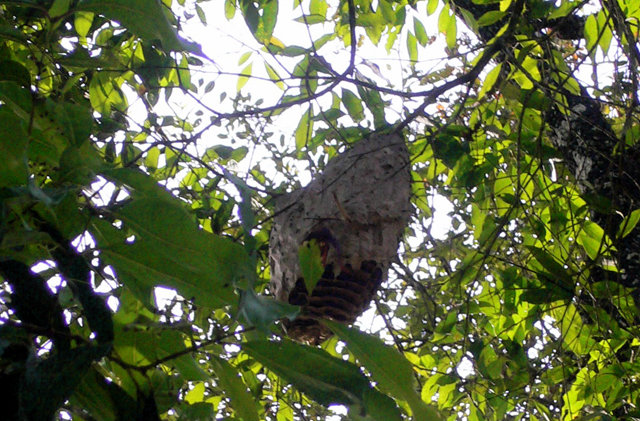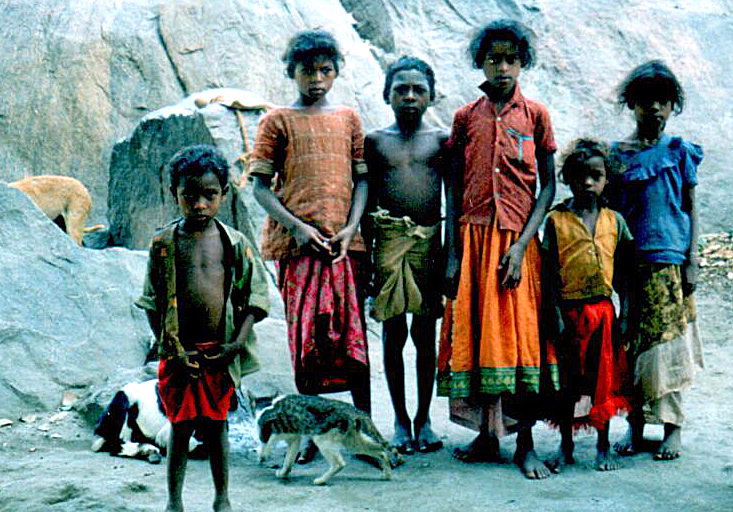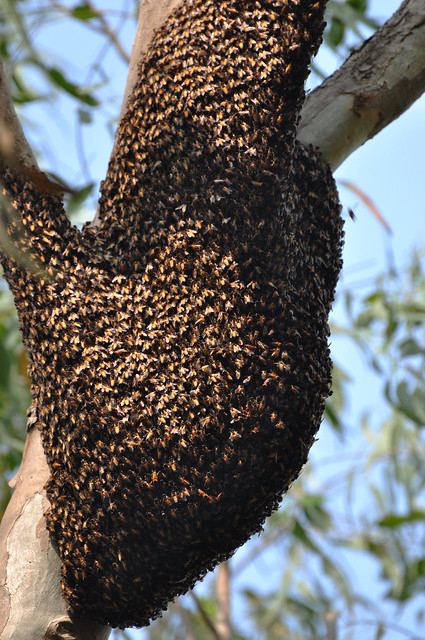Two women fled the Indian mega-city of Bengaluru for the rural life in Kodaikanal four years ago because they had been impressed by the Paliyans and their ways of harvesting wild honey. The story of the two women and the forest-cherishing spirit of the Paliyans impressed a reporter from the South Indian paper the Deccan Herald, which published an article about them on Sunday last week.

Nishitha Vasanth and Priyashri Manil were in Kodaikanal in 2015 for a funded project focusing on understanding the Adivasi—indigenous—people living there and the ways they take care of the shola forests. When some Paliyans offered to sell the two honey, the city people became intrigued. Why not sell the forest honey to a wider audience? They started a business called Hoopoe on a Hill to market the Paliyan products—the honey produced by the wild bees—more widely. Besides, they were intrigued by the hunting and gathering lifestyle of the Paliyans and wanted to be more involved with it.
The Paliyans have been trading honey for a very long time, exchanging it for necessities such as salt or clothing, though they now sell the honey they gather for money, the ladies told the journalist. Priyashri went on to say that they are committed to making sure that the Paliyans get a fair return for their honey; they want to ensure that their business relationships are fair and not exploitative. “This gives [the] Adivasis one more reason to continue their traditional livelihood inside the forest,” Nishita added.

The pair said that they were fascinated by the way the Paliyans venture into the forests and gather honey. They choose a camp site and fabricate the tools and supplies they will need out of twigs and vines. After offering a prayer, people with the skills to climb will go up trees or cliffs to get near the beehives. Then they use smoke to overwhelm the bees so they can take the honey chamber out of the hive. They bring the honeycombs down to the ground, extract the honey, and leave the combs and hives for the bees when they head back to their villages with their harvest.
The ladies added that the Paliyans have been passing down their forest skills and knowledge for generations. For instance, they know that smoking bees out of their hives will only affect them temporarily and that they will return to their hives shortly after the smokers have left. Since the Paliyan are careful to only remove the honey chamber from the hive, the brood is left intact. The bees will return and soon rebuild the honey chamber—at least by the following season.

Furthermore, the Paliyans limit harm to the honeybees by not using any machinery in the harvesting. The gathering is done by individuals who are camped temporarily in the forest.
Priyashri and Nishita say that another benefit of their arrangement with the Paliyans is that during the honey-harvesting season, they have access to greater amounts of money which they use for larger expenses—weddings, school fees, and repaying loans. The money they earn from gathering honey is more significant to them than the earnings from daily work for wages. For their part, the two women admit that they often have to return to the city due to their business—“but we love our home here,” they conclude.

The major changes in the honey-gathering by the Paliyans today as compared to 50 years ago when Peter Gardner was doing fieldwork in their communities would appear to be in the marketing of the produce from the forests of Tamil Nadu. Gardner (1972) noted that the honey was gathered from trees and cliff faces then, as it is obviously done today. Honey was a major sources of income then as now.
In 1972, they traded the honey with their Tamil neighbors for things like clothing, pots, tools and ornaments. Now they sell their honey for money in order to pay for such things. But when it comes to their relationship with the forest, a very similar sense of close connection and respect for the wild bees comes through in the current article in the Deccan Herald as well as in Gardner’s writings: the Paliyans are still intent on preserving the forest for the many benefits they gain from it.